
Ariane Millot
Research Associate in Energy Systems Modelling, Imperial College London
Ariane Millot is a Research Associate at Imperial College London. Her research focuses on energy system modelling and the analysis of the economic and social impacts of the energy transition. She is supporting the Climate Compatible Growth (CCG) programme, which aims to help low and middle-income countries achieve low-carbon development pathways while meeting their sustainable development goals. She has a PhD in energy modelling from Mines Paris – PSL, where she developed scenarios for the French energy transition using a bottom-up optimization model (TIMES). She also has experience working at the International Energy Agency on the buildings sector for the World Energy Outlook, where she contributed to several reports including the special Net Zero report.
Less ![]()
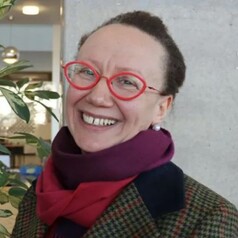
Arianna Di Florio
Professor and Clinical Psychiatrist, Cardiff University
Professor Arianna Di Florio is a researcher and clinical psychiatrist at Cardiff University.
Her research investigates the impact of reproductive events such as the menstrual cycle, childbirth, and menopause on psychiatric disorders. In her clinical practice, Professor Di Florio offers a free-of-charge service providing second opinions for women with bipolar disorder and patients experiencing severe psychiatric disorders associated with reproductive events.
She is the founder of the Reproductive Mental Health Clinical and Research Programme at Cardiff University, as well as lead of the Bipolar Disorder Genomics Research Group within the Centre for Neuropsychiatric Genetics and Genomics.
Less ![]()
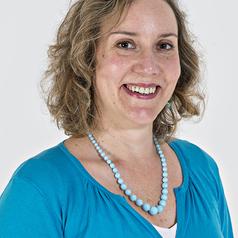
Arianna Maiorani
Reader in Linguistics and Multimodality, Loughborough University
Arianna Maiorani joined Loughborough University in 2008. Born in Rome, Italy, she holds an MA in Modern Languages and Literatures from the University of Rome “La Sapienza” and a PhD in Cultural Sciences from the International School of High Studies of the San Carlo Foundation in Modena, Italy.
Before joining Loughborough University, she taught English Language, Linguistics, Multimodality and Translation at the University of Bologna “Alma Mater Studiorum” and the University of Rome “La Sapienza” for many years.
She is also an ex professional ballet dancer, teacher and choreographer and holds a diploma from the Ballet School of the Opera Theatre of Rome. In 2014, she created the community cast choreography for Michael Pinchbeck’s Bolero.
She speaks Italian, English, French and Spanish and has worked as a professional translator for international publishers for many years. Her book for children Il Manuale della Giovane Ballerina (The Handbook of the Young Dancer), published in 1996 by Mondadori, has now become a collectible item.
Dr Maiorani’s main research interests are Multimodality, Linguistics, Social Semiotics, and the Semiotics of Dance and Performance. She is particularly interested in interdisciplinary work that focuses on the application of linguistic and semiotic analytical frameworks to the study of multimodal discourse strategies.
Between 2012 and 2014 she took part in an international research projects on The Languages of Film with the University of Pavia (IT) and the University of Malta.
After leading an interdisciplinary pilot project in Dance Discourse in 2017 in collaboration with the English National Ballet, she is currently leading a AHRC-DFG interdisciplinary collaborative project involving Loughborough University and Bremen University (Germany) entitled The Kinesemiotic Body: a pragmatic account of the local discourse organisation of dance( Kinesemiotics: Modelling How Choreographed Movement Means in Space | English | Loughborough University (lboro.ac.uk) ). In collaboration with Massimiliano Zecca (Loughborough University) and Russell Lock (Loughborough University) she created the interdisciplinary research area of Kinesemiotics. The Loughborough team is currently working on Kinesemiotics with the Bremen team led by John Bateman (Kinesemiotic Body - Universität Bremen (uni-bremen.de).
Less ![]()
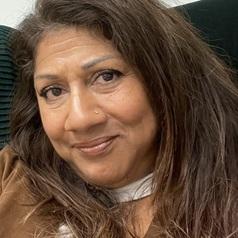
Arianne Maraj
PhD student, Department of Integrated Studies in Education, McGill University
Arianne Maraj is a McGill doctoral student and Bombardier scholar, specializing in Education and Society. Her academic background includes a B.A. in cultural anthropology and world religions, an M.A., in Administration and Policy Studies in Education, and teaching qualifications in French as a second language, and Moral Education. Her research and interests address social justice for fair and inclusive education, specifically on the challenges to the academic integration of refugees in the Global North and South, as reflected in her publications. As a visiting scholar with the UNESCO chair for Refugee Integration (2022), at Glasgow University, and the Global Hub for Education in Emergencies (2023) at Geneva University, her research aims to inform policymakers for the betterment of vulnerable youth and ameliorate teacher education for refugees. She has extensive experience as a teacher/lecturer and as an educational program director for disadvantaged and vulnerable youth, in Canada, France, China, Hong Kong, Thailand, Lebanon, and Madagascar.
Less ![]()
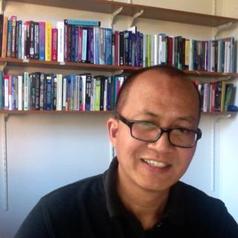
Arianto Patunru
Fellow, The Arndt-Corden Department of Economics, Australian National University
Patunru joined the Arndt-Corden Department of Economics in October 2012. Prior to that he served as the head of Institute for Economic and Social Research, Department of Economics, University of Indonesia (LPEM-FEUI). He holds a PhD from the University of Illinois at Urbana-Champaign.
Areas of expertise:
Environment and Resource Economics
International Economics and International Finance
Economic Development and Growth
Less ![]()
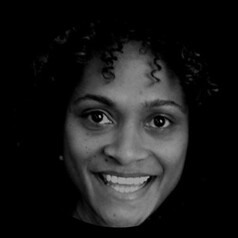
Ariela Zibiah
PhD Candidate (Pacific Studies), University of Canterbury
A development sector practitioner for more than two decades, with a focus on strategic communications and advocacy, and early career in mainstream national, regional and international print and broadcast (radio and television) media. Currently pursuing a PhD programme at the Macmillan Brown Centre for Pacific Studies in Development, Gender and Public Diplomacy (Image Cultivation). A BA in History/Politics and Journalism, 2004 (University of the South Pacific, USP); Certificate, French Language, 2005 (Maitrise, Universite de Poitier); Post-Graduate Diploma in Pacific Studies, 2009 (USP); MA Gender Studies, 2011 (University of Sussex).
Less ![]()
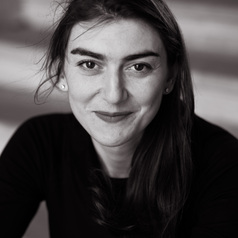
Ariell Ahearn
Departmental Lecturer in Human Geography, University of Oxford
Prior to becoming Departmental Lecturer in Human Geography, Ariell was the Course Director of the MSc/MPhil in Nature, Society and Environmental Governance and before that an ESRC-GCRF postdoctoral fellow at the School for Geography and the Environment on an independent project called Managing Development and Infrastructure: Understanding State Engagements with Rural Communities in Mongolia. She completed her DPhil from the School for Geography in February 2016. She holds a BA degree in Anthropology from Hartwick College and an MPA from Cornell University in the United States.
Since 2004, Ariell has worked extensively in rural Mongolia with mobile pastoralist communities around land use and rural development issues. She started her research in 2004 studying the guest house and international traveller culture in Ulaanbaatar. From 2006-2007 she held a US Fulbright Fellowship in Mongolia to study international development discourse related to herder livelihoods. Her DPhil work from 2012-2016 consisted of an ethnography focused on the governance of pastoralism and changing forms of work in rural Mongolia.
In 2016 she engaged as an expert on a multi-disciplinary team to conduct a qualitative analysis of herder livelihoods and socio-economic changes related to the Oyu Tolgoi mega mine complex in the South Gobi Desert. From this work, Ariell's research focus has become concerned with understanding the impacts of mines and infrastructure investment (particularly Belt and Road Projects) in rural Mongolia, Central and South Asia (mostly Kyrgyzstan and Pakistan) and implications for politics and formations of the state in this region.
Ariell's current research aims to understand the relationship between social systems, resource distribution and governance frameworks in regions undergoing economic transformation. She specializes in qualitative, participatory research, using methods such as ethnographic participant observation, interviewing, mapping and immersive field work to document and analyse the conditions that inform human decision-making and organization.
Less ![]()
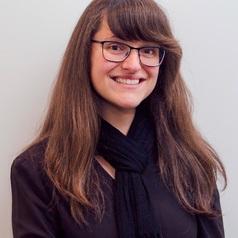
Ariella Meltzer
Research Fellow in Social Impact, UNSW Sydney
Dr Ariella Meltzer is a Research Fellow at the Centre for Social Impact, UNSW. Her research focus is on relationships and social change, with particular interests in disability, young people, siblings and families, mentoring, peer support and supportive community relationships. She also has a core research interest in information accessibility for people with disability. She has been involved in a range of research and evaluation across the social impact sector.
Less ![]()
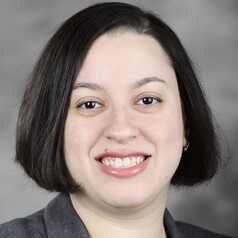
Arielle Kuperberg
Professor of Sociology, University of North Carolina – Greensboro
Professor of Sociology at UNC Greensboro, Chair of the Council on Contemporary Families, and author of over 20 peer reviewed articles on topics related to families, relationships, and young adulthood with student loans.
Less ![]()

Arif Perdana
Associate Professor Digital Strategy and Data Science, Monash University
Arif Perdana, Ph.D memperoleh doktor di Bidang Sistem Informasi dari UQ Business School, the University of Queensland, Australia. Arif memiliki pengalaman sebagai akademisi dan konsultan di bidang teknologi digital, sistem informasi dan analitika data. Arif pernah mengajar di the University of Queensland, Australia; Aarhus University, Denmark; dan Singapore Institute of Technology. Saat ini ia adalah Associate Professor di Monash University. Ia pernah terlibat dalam berbagai aktifitas pelatihan professional, penelitian, dan konsultansi dengan beberapa perusahaan dan institusi publik di antaranya Kementerian Pertahanan Singapura, Institute of Singapore Chartered Accountants, RSM Singapore, PKF CAP LLP Singapore. Intellectual Property Office Singapore; PSA International Pte Ltd; Hewlett Packard, Inc; Deloitte & Touche; BNI; OCBC-NISP; Traveloka Indonesia, tiket.com; and Julo Teknologi Finansial. Fokus risetnya berkaitan dengan ilmu data, analitika data, dan pemanfaatan teknologi digital di akuntansi, bisnis dan keuangan.
Arif dapat dikontak di:[email protected]
Less ![]()
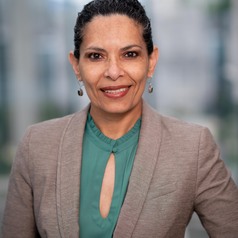
Arig al Shaibah
Associate Vice-President, Equity & Inclusion and Honorary Associate Professor Educational Studies, University of British Columbia
I am a scholar practitioner. I have been working in higher education for over 20 years in various administrative role while also holding faculty appointments. Currently, I am the Associate Vice President, Equity & Inclusion at the University of British Columbia. My areas of academic and professional interest and experience relate to student success, EDI, intergroup relations, race and racism, leadership and organizational theory for equity in higher education.
Less ![]()
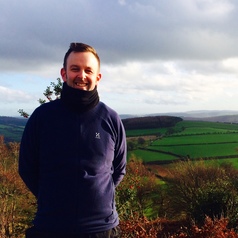
Arin Keeble
Arin Keeble's research focuses on the way contemporary literature and culture represents and responds to terrorism, crisis and disaster. Under this umbrella he is working in three distinct areas: the '9/11 novel', narratives of Hurricane Katrina and contemporary American television (particularly David Simon and TV audiences in the UK). He currently has significant projects underway in each of these areas.
The '9/11 Novel' – Dr Keeble's work in this area has sought to move beyond a polarised critical paradigm that has pitted domestic narratives of trauma in opposition to more outwardly facing political narratives. This was the subject of Dr Keeble's doctoral research, and he has published three peer reviewed articles in Modern Language Review, Reconstruction and European Journal of American Culture in this area. Additionally, his monograph, The 9/11 Novel: Trauma, Politics and Identity was published by McFarland in 2014. His most current work in this area is an article on Thomas Pynchon's Bleeding Edge (2013) entitled 'Before and After in Bleeding Edge', which is under review.
Narratives of Hurricane Katrina – Dr Keeble's work on Katrina focusses on the ways in which literary, cinematic and televisual narratives of Katrina respond not just to the Katrina crisis, but also to the politics of the War on Terror, and to the perceived apolitical nature of many early narratives of 9/11. Dr Keeble's first publication in this area was 'The Aggregation of Politics in Dave Eggers Zeitoun' which appeared in the peer reviewed Journal of Comparative American Studies (13.3). Dr Keeble has also guest edited a special issue of European Journal of American Cultures which comes out later this year, and includes his article on David Simon's television series Treme (2009-2013) 'Won't Bow, Don't Know How: Treme, and New Orleans Exceptionalism'. Additionally Dr Keeble is working on a new monograph on Katrina narratives which will appear in 2017.
American Television – Dr Keeble's first published work in this area was a co-edited collection of essays with Dr Ivan Stacy (Hong Kong Baptist University) on David Simon's The Wire (2002-2008) which appeared in 2015, The Wire and America's Dark Corners: Critical Essays. Dr Stacy and Dr Keeble have continued to collaborate on the subject of David Simon's television; their co-guest edited special issue of European Journal of American Cultures features eight new essays on Simon. Dr Keeble's interest in US television extends to the way it is received by UK audiences and he is developing an audience studies partnership project with a colleague at Durham University and two major UK cultural cinemas.
Less ![]()
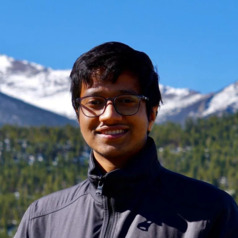
Arindam Sau
Ph.D. Candidate in Chemistry, University of Colorado Boulder
Currently working on using ultrafast spectroscopic technique to investigate photocatalytic pathways.
Less ![]()

Arjun Guneratne
Professor of Anthropology, Macalester College
Arjun Guneratne is Professor of Anthropology at Macalester College. He was born in Sri Lanka and studied law for a year at the University of Colombo, before enrolling at Dartmouth College to study anthropology. He developed a keen interest in development problems while a student at Dartmouth, and spent his senior year in Dartmouth’s Senior Fellows program where, excused from completing his anthropology major, he could devote his time and energy to studying development problems in Sri Lanka’s peasant resettlement projects. This work resulted in a thesis, Water, Rice and People: Problems and Constraints of Peasant Colonization in the Dry Zone of Sri Lanka.
After Dartmouth, he entered the PhD program in anthropology at the University of Chicago, intending to continue his interest in development. However, ethnic conflict in Sri Lanka between the Sinhala-dominated state and Tamil separatist rebels kindled an interest in how ethnic identities emerge. He pursued this interest in Nepal, a country where the literature about ethnicity suggested it was a fluid process rather than a fixed identity derived from the past. He focused on the Tarai, the narrow strip of once malarial land abutting the mountains; not many foreign scholars had worked there and the main ethnic group inhabiting the region, the Tharu, had been little described. His dissertation was a study of the development of ethnic consciousness among the Tharu of Nepal and its relation to class stratification, processes of state building and the cultural and socio-economic transformation of the Tarai that followed on the success of the Malaria Eradication Program in Nepal. The dissertation became the basis of his first book, Many Tongues, One People: The Making of Tharu identity in Nepal (Cornell 2002).
Less ![]()
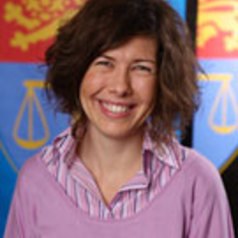
Arlie Loughnan
Associate Professor in Law, University of Sydney
Dr Arlie Loughnan joined the Faculty in 2007. She is a graduate of the University of Sydney (BA Hons 1 LLB Hons 1), New York University Law School (LLM) and London School of Economics (PhD).
Arlie's research concerns criminal law and the criminal justice system, with a focus on the relationship between legal doctrines, practices, institutions and knowledge. Her particular interests are constructions of criminal responsibility and non-responsibility, the interaction of legal and expert medical knowledges and the historical development of the criminal law.
Current projects include a co-authored text (with Mark Findlay and Thalia Anthony), Criminal Law and Process: Contexts and Problems (OUP, forthcoming).
Less ![]()
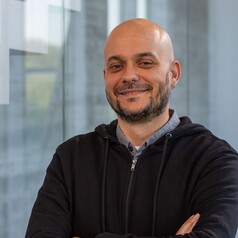
Armand Hernández
Investigador Ramón y Cajal en Ciencias de la Tierra y del Agua, Centro Interdiscilplinar de Química e Bioloxía (CICA), Universidade da Coruña
Soy paleoclimatólogo con experiencia en diferentes campos del estudio del clima que van desde reconstrucciones climáticas a lo largo del Cuaternario a calibración de datos de registros naturales mediante registros instrumentales. Además, durante mi carrera he buscado enfoques novedosos para mejorar el estudio de la variabilidad atmosférica regional y global durante los últimos milenios.
Me licencié en Geología por la Universitat de Barcelona (UB) en el año 2003. Posteriormente, en septiembre de 2010, obtuve mi doctorado en ciencias de la Tierra en el GEO3BCN-CSIC y la UB con la máxima calificación. También recibí el premio a la mejor tesis doctoral en Ciencias de la Tierra presentada en la UB en ese año. Como investigador, en mi etapa postdoctoral, obtuve dos contratos en concurrencia competitiva: un contrato FCT-Marie Curie Cofund de 2012 a 2017 para trabajar en el IDL-Universidade de Lisboa (Portugal); y un contrato Beatriu de Pinós (AGAUR) de 2018 a 2020, para desarrollar mi propio proyecto de investigación en el GEO3BCN-CSIC. Después de dos años académicos (2020-2022) como profesor en gestión ambiental y forestal, actualmente (desde 2022) soy Investigador Ramón y Cajal en el CICA - UDC, profesor del Departamento de Física y Ciencias de la Tierra, y desde 2024, director de sostenibilidad de la Universidade da Coruña.
Durante mi carrera, he realizado estancias de investigación en distintos centros reconocidos por sus estudios del Cuaternario, lo que me ha permitido adquirir un conocimiento interdisciplinar en biogeoquímica, geocronología y estadística avanzada, para llevar a cabo nuevas reconstrucciones climáticas del Cuaternario basadas en indicadores procedentes de registros naturales. Estas estancias fueron en el British Geological Survey (Reino Unido), la Universidade de Lisboa (Portugal), el University College of Dublin (Irlanda) y la Royal Holloway University of London (Reino Unido). Los principales resultados de mi investigación, derivados de mi liderazgo y colaboración en diversos proyectos de investigación nacionales e internacionales, han sido publicados en revistas científicas internacionales.
Less ![]()

Armin Alimardani
Lecturer, University of Wollongong
Armin is a Lecturer in the School of Law at the University of Wollongong (UOW). His interdisciplinary research sits at the intersection of law, technology, science and philosophy. His publications and talks focus on the social, ethical and legal impact of emerging technologies such as machine learning (ML), artificial intelligence (AI), neuroscience and genetics.
Armin’s current projects include studying the way technology is shaping the future of the legal profession (collaborating with Deakin University), and the potential use of AI in sentencing (collaborating with the University of Brawijaya). Armin has a great sense of innovation in teaching and learning and currently collaborating with colleagues at UNSW Sydney to build and prototype research and educational tools with artificial intelligence (https://safetofailai.streamlit.app).
Armin has a great sense of innovation in teaching and learning and currently investigating the potential benefits and perils of the use of AI in education. Armin’s new research-led course, Law and Emerging Technologies, is offered to UOW students for the first time in 2023.
Less ![]()
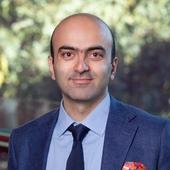
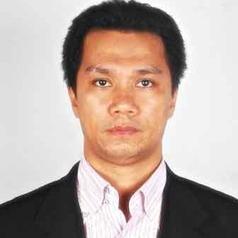
Armin Lawi
Associate Professor (Lektor Kepala) of Computer Science, Universitas Hasanuddin
Armin Lawi is an Associate Professor (Lektor Kepala) of Computer Science at the Faculty of Mathematics and Natural Sciences at Hasanuddin University, Makassar, Indonesia. Concurrently, he also serves as a Vice-Chancellor (Wakil Rektor) for Academic and Student Affairs at the B.J. Habibie Institute of Technology, a new national university was established in Parepare City, South Sulawesi Province, Indonesia, in 2022. He earned a bachelor's degree in mathematics from Hasanuddin University; a master's degree and Ph.D. courses in computer science and communication engineering from Kyushu University, and a Doctor of Engineering degree in creative informatics from the Kyushu Institute of Technology, Japan. Armin can be contacted via email at both [email protected] and [email protected].
Less ![]()

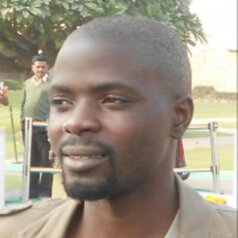
Armwell Shumba
Chercheur en agronomie, University of Zimbabwe
I am a Research Officer and Crop nutritionist and one of my career objectives if to leave a mark in the agricultural research, extension and advisory sectors through the pursuit of excellence and integrity.
Zimbabwe's economy is agro-based and agriculture and its related businesses are the highest employers. Ironically Zimbabwe has the highest rate of unemployment in Southern Africa and most of them are youths who have attained some form of tertiary education. I strongly believe that youth engagement through such forums and conferences can help developing countries like Zimbabwe to reduce unemployment to 'acceptable' levels and in the long-run reduce extreme poverty and hunger.
Less ![]()
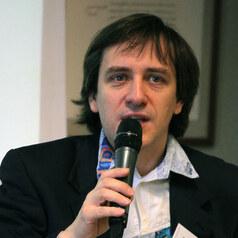
Arnaud Mercier
Professeur en Information-Communication à l’Institut Français de presse (Université Paris-Panthéon-Assas), Université Paris-Panthéon-Assas
Lauréat de l'IEP de Paris et docteur en science politique, il est professeur des universités, spécialiste des réseaux socionumériques, de la sociologie du journalisme et du webjournalisme, des fake news et de la communication politique. Arnaud Mercier enseigne à l'Institut Français de Presse (IFP) et appartient au Centre d'analyse et de recherche interdisciplinaire sur les médias (CARISM).
Responsable depuis janvier 2022, au sein du CARISM de l'Observatoire du podcast d'information (programme de recherche Obcast), il est chercheur associé au CREM (université de Lorraine). Il fut le premier président de The Conversation France à sa création en 2015.
Less ![]()

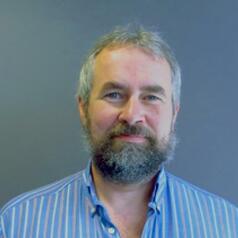
Arnd Jurgensen
I have taught in the departments of political science at Wilfrid Laurier University (1988-91), UBC (1992-4) and the University of Toronto (2003 to present). From 1995 to 2003 I taught in the faculty of applied science and engineering at U of T as well as in the interdisciplinary Arts and Sciences program at McMaster University.
Less ![]()

Arne Bewersdorff
Post Doctoral Researcher in Educational Sciences, Technical University of Munich
Less ![]()

Arne Hintz
Arne Hintz is a Senior Lecturer at the Cardiff School of Journalism, Media and Cultural Studies and is Director of MA Digital Media and Society.
His research connects communication policy, media activism, citizen media and technological change. From 2014 to 2016 he was Principal Investigator of the ESRC-funded project 'Digital Citizenship and Surveillance Society'.
His publications include the book ‘Civil Society Media and Global Governance’ (Lit, 2009) and the co-edited volume ‘Beyond WikiLeaks: Implications for the Future of Communications, Journalism & Society’ (Palgrave, 2013), as well as chapters in volumes such as ‘The Handbook on Global Media and Communication Policy’ (Wiley-Blackwell, 2011) and the Encyclopedia of Social Movement Media (Sage, 2010).
He is Chair of the Community Communication Section of the International Association for Media and Communication Research (IAMCR), and he has worked as a community and citizen media expert with advocacy initiatives such as the Community Media Forum Europe (CMFE) and UN processes such as the World Summit on the Information Society (WSIS).
Research Interests:
Alternative/Citizen/Community/Social media
Communication policy, media governance, communication rights and restrictions
Civil society and social movements, media and policy activism
Digital media, information society, internet studies and digital citizenship
Less ![]()
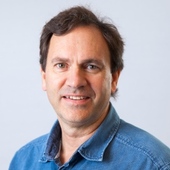
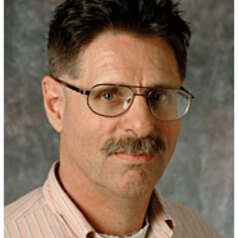
Arnold Lewis Glass
Professor of Psychology, Rutgers University
I have been publishing reports of my research on learning and memory since 1971.I am a Professor of Psychology at Rutgers University, where I have been on the faculty since 1975. I am the author of Cognition: A Neuroscience Approach published by Cambridge University Press. At the beginning of this century I as an early investigator of the effects of new technologies on education and I performed some of seminal classroom studies.using an experimental design Therefore, I was well positioned to discover the insidious effects of cell phones on memory when they emerged.
Less ![]()
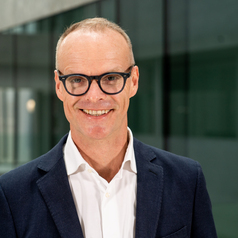
Arnstein Aassve
Professor in Demography, Bocconi University
Arnstein Aassve, PhD in Economics, is a Professor at Bocconi University, boasting an extensive background in academic and institutional leadership. With a history of receiving two ERC projects, he currently spearheads the Horizon Europe project, FutuRes: Towards a Resilient Future of Europe. This initiative focuses on three key domains: education, employment, and health, aiming to craft policies that enhance the resilience of both citizens and institutions. The project has established a policy lab, acting as a crucial link between scientific research and policymakers. Aassve has collaborated with Eurofound, the EU Cabinet of the Vice President of Demography and Democracy, Dubravka Suica, and the Joint Research Centre (JRC). His publications span political science, sociology, economics, demography, econometrics, global and public health, and include several reports targeting policymakers and the public. Topics covered in these reports range from institutional trust and the Covid pandemic to youth issues. His latest project is scheduled to run until 2026.
Less ![]()

Aron Darmody
Associate Professor of Marketing, Carleton University
I am an associate professor of at Carleton University. My research focuses on consumer experiences and how they are mediated, impacted, and shaped through digital media. I also conduct research on marketers and how they behave and enact their roles within organizations.
Less ![]()
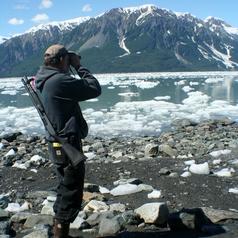
Aron L. Crowell
Arctic Archaeologist, Smithsonian Institution
Dr. Aron L. Crowell is an Arctic archaeologist and Alaska Director of the Smithsonian Institution’s Arctic Studies Center in Anchorage. His research in collaboration with Alaska Native communities has examined cultural adaptations to coastal ecosystems, historical ecology, cultural landscapes, tectonic and glacial impacts, and Indigenous ecological knowledge. His books and edited volumes include Laaxaayík: Near the Glacier: Indigenous History and Ecology at Yakutat Fiord, Alaska (Smithsonian Scholarly Press 2024), Arctic Crashes: People and Animals in the Changing North (Smithsonian Scholarly Press, 2020), and Archaeology and the Capitalist World System: A Study from Russian America (Plenum Press, 1998). Crowell has led or co-curated Smithsonian exhibitions including Looking Both Ways: Heritage and Identity of the Alutiiq People (2001); Gifts from the Ancestors: Ancient Ivories of Bering Strait (2009), and Living Our Cultures, Sharing Our Heritage: The First Peoples of Alaska (2010). Crowell has served on the Advisory Committee for the Office of Polar Programs at the National Science Foundation and represents the Smithsonian for the Arctic Research Consortium of the United States. His Ph.D. in Anthropology is from the University of California, Berkeley (1994).
Less ![]()
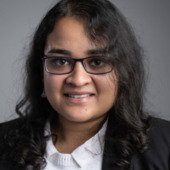

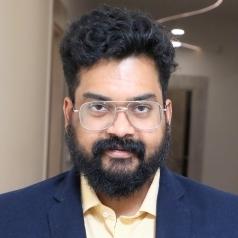
Arshad Arjunan Nair
Research Scientist in Atmospheric Sciences, University at Albany, State University of New York
Arshad Arjunan Nair is a Research Scientist at the Atmospheric Sciences Research Center (ASRC) of the University at Albany. Inherently an interdisciplinarian, Dr. Nair identifies concepts across disciplines and integrates them to address pressing research questions with societal implications. He received his Dual-Degree BS-MS in Physics from the Indian Institute of Science Education and Research (IISER), Pune, India and his PhD in the Atmospheric Sciences from the University at Albany, for which he won the 2021/22 SUNY Chancellor Distinguished PhD Graduate Dissertation Award (First Place).
Dr. Nair’s research intersects multiple disciplines, broadly aimed at contributing to our understanding of various impacts of atmospheric trace gases (particularly ammonia) and aerosols on climate and public health using synergistic approaches that have cross-disciplinary implications. His development of explainable machine learning models for the quantification of aerosol properties have contributed to mitigating the largest climate model uncertainties due to aerosol–cloud interactions. This work has further implications for the development and application of explainable (xAI), interpretable, and trustworthy artificial intelligence. Dr. Nair’s postdoctoral work was aimed at understanding unforeseen impacts of air-quality and health associations under a changing paradigm of atmospheric chemistry, particularly with emergent pollutants and their disparate impacts on underserved populations. His research is widely published, and he actively engages in interdisciplinary efforts to address pressing environmental challenges, aiming to inform public policy and bolster our community’s climate and health resilience.
Less ![]()
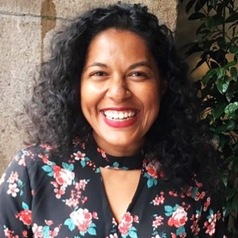
Arshnee Moodley
AMR Team Leader, CGIAR System Organization
Arshnee is a microbiologist who has been working on antimicrobial resistance for 20 years. She is the leader of the CGIAR Antimicrobial Resistance Hub and is the AMR team lead at the International Livestock Research Institute in Nairobi, Kenya. She is jointly appointed as an associate professor at the University of Copenhagen, Denmark. Her research focuses on drivers of antimicrobial use, selection and spread of AMR, understanding AMR policies and identifying context relevant AMU reducing interventions in smallholder farming systems in sub-Saharan Africa and south-east Asia.
Less ![]()
- Market Data




















